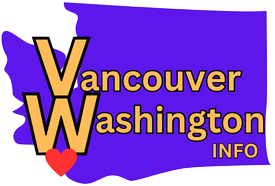
How to File for Bankruptcy in Vancouver Washington
Table of Contents
ToggleHow to File for Bankruptcy in Vancouver Washington
If you find yourself drowning in debt and seeking a fresh start, filing for bankruptcy in Vancouver Washington might be the solution you’ve been searching for. As an American facing financial hardship, you have the right to seek bankruptcy protection. Fortunately, Vancouver is home to experienced bankruptcy attorneys who can offer free consultations and guide you through the entire bankruptcy process. Understanding key terms like discharge, automatic stay, and means test is crucial, as it will help you make informed decisions throughout the process. Depending on your circumstances, you may opt for Chapter 7, which involves liquidating nonexempt property and discharging unsecured debts, or Chapter 13, a reorganization bankruptcy with a repayment plan spanning 3-5 years. Your bankruptcy journey will involve discussions with attorneys, collecting financial documents, completing debtor education and a financial management course, and attending hearings. It’s important to keep in mind that bankruptcy exemptions exist, allowing you to keep certain properties based on federal or Washington exemptions. To navigate this intricate process and choose the best chapter for your situation, seeking the guidance of an experienced bankruptcy attorney is highly recommended.
The information provided in this article is for educational and informational purposes only. It should not be construed as legal advice or relied upon as a substitute for professional legal guidance. Filing for bankruptcy is a complex legal process, and the specific laws and regulations governing bankruptcy proceedings vary by jurisdiction.
As the author of this article, I am not a lawyer, and I do not have expertise in providing legal advice. Readers are encouraged to consult with a qualified attorney or financial advisor who specializes in bankruptcy law in Vancouver, Washington, or their specific jurisdiction.
Understanding Bankruptcy in Vancouver Washington
Bankruptcy can be a daunting and overwhelming process, but it is important to remember that it is a tool designed to help individuals navigate financial hardship and start fresh. If you find yourself facing insurmountable debt in Vancouver, Washington, filing for bankruptcy may be an option worth considering. In this comprehensive article, we will explore the benefits of filing for bankruptcy, the importance of seeking legal assistance from Vancouver bankruptcy attorneys, essential bankruptcy terms to know, the different chapters of bankruptcy, and the step-by-step process of filing for bankruptcy.
Exploring the Benefits of Filing for Bankruptcy
Filing for bankruptcy in Vancouver, WA can provide individuals with the opportunity to eliminate debt and regain control over their financial situation. It offers a fresh start and a chance to rebuild credit. One of the most significant benefits of filing for bankruptcy is the automatic stay, which puts a halt to creditor actions such as collection calls, lawsuits, and wage garnishments. This can provide immense relief to individuals who are being overwhelmed by the constant pressure of creditors. Additionally, bankruptcy can help individuals avoid foreclosure and repossession, allowing them to keep their homes and vehicles.
Understanding Bankruptcy Protection in Financial Hardship
It is important to realize that bankruptcy protection is a right available to all Americans who find themselves in financial hardship. While it may be seen as a last resort, bankruptcy can provide the necessary relief to individuals who are drowning in debt and have no other viable options. It is a legal process that allows individuals to restructure their finances and eliminate or repay their debts.
Importance of Consulting with Bankruptcy Attorneys
When considering filing for bankruptcy, it is highly recommended to consult with experienced Vancouver bankruptcy attorneys. They have specialized knowledge and expertise in navigating the complex bankruptcy laws and can provide invaluable guidance throughout the process. The laws surrounding bankruptcy can be complicated, and having an attorney by your side can ensure that you fully understand your rights and options. They will help you assess your financial situation, determine the best chapter of bankruptcy for your circumstances, and guide you through the necessary steps.
Availability of Free Consultations
Many bankruptcy attorneys in Vancouver offer free initial consultations to potential clients. These consultations give individuals the opportunity to discuss their financial situation with an attorney, ask questions, and get a better understanding of their options. This initial meeting is crucial in establishing a relationship with an attorney whom you feel comfortable working with and trust to handle your case.
Guidance through the Bankruptcy Process
The bankruptcy process can be overwhelming, especially for individuals who are already dealing with financial stress. Vancouver bankruptcy attorneys can provide the necessary guidance and support throughout the entire process. They will help you gather and organize all the required financial documents, fill out the necessary forms, and ensure that all the necessary steps are taken to move your case forward. Having an attorney by your side provides peace of mind and ensures that your rights are protected throughout the process.
Essential Bankruptcy Terms to Know
Before diving into the different chapters of bankruptcy, it is important to familiarize yourself with some essential bankruptcy terms. These terms are integral to understanding the bankruptcy process and your rights as an individual seeking bankruptcy protection.
Discharge: Eliminating Debts
One of the main goals of filing for bankruptcy is to obtain a discharge, which is the court’s order stating that your debts have been eliminated. This discharge releases you from the legal obligation to repay those debts. It is important to note that not all debts are dischargeable, and there are certain types of debts, such as child support and student loans, that generally cannot be discharged in bankruptcy. Understanding which debts can be discharged and which cannot is crucial when considering bankruptcy as an option.
Automatic Stay: Halting Creditor Actions
The automatic stay is a powerful tool provided by the bankruptcy process. When you file for bankruptcy, the automatic stay goes into effect immediately, putting a temporary halt to all creditor actions against you. This means that creditors cannot continue their collection efforts, including phone calls, lawsuits, and wage garnishments. The automatic stay provides individuals with much-needed relief and allows them to focus on their bankruptcy proceedings without the constant stress and pressure of creditor actions.
Means Test: Assessing Eligibility for Chapter 7
The means test is a crucial step in determining your eligibility for Chapter 7 bankruptcy. It is a calculation that compares your income to the median income in your state. If your income is below the median, you automatically qualify for Chapter 7. However, if your income is above the median, you may still qualify based on your disposable income and other factors. The means test ensures that individuals who have the means to repay their debts are not able to abuse the Chapter 7 bankruptcy process.

Chapter 7 Bankruptcy: Liquidation and Debt Discharge
Chapter 7 bankruptcy, also known as “liquidation bankruptcy,” is the most common form of bankruptcy filed by individuals. It involves the liquidation of nonexempt assets, which are then used to repay creditors, and the discharge of unsecured debts. Chapter 7 bankruptcy provides individuals with a fresh start by eliminating most of their unsecured debts, such as credit card debt and medical bills.
Liquidation of Nonexempt Property
In Chapter 7 bankruptcy, nonexempt assets are sold or liquidated to repay creditors. It is important to note that not all of your assets will be liquidated. Each state has a set of exemptions that allow individuals to protect certain assets, such as their primary residence, vehicle, and personal belongings, up to a certain dollar value. It is crucial to consult with Vancouver bankruptcy attorneys to determine which assets are exempt and can be retained during the bankruptcy process.
Discharge of Unsecured Debts
One of the primary benefits of Chapter 7 bankruptcy is the discharge of unsecured debts. This includes debts such as credit card debt, medical bills, and personal loans. Once your debts are discharged, you are no longer legally obligated to repay them. However, it is important to note that some debts, such as child support, alimony, and student loans, are generally not dischargeable in bankruptcy. It is crucial to discuss the specifics of your debts with your bankruptcy attorney to determine which ones can be discharged.
Chapter 13 Bankruptcy: Reorganization and Repayment Plan
Chapter 13 bankruptcy, also known as “reorganization bankruptcy,” is another option for individuals in Vancouver who may not qualify for Chapter 7 or want to repay their debts over a period of time. Chapter 13 involves creating a repayment plan that spans 3-5 years, during which individuals make monthly payments to a bankruptcy trustee who distributes those funds to creditors.
Understanding the Repayment Plan
In Chapter 13 bankruptcy, a repayment plan is created based on your income and expenses. The plan typically includes paying off priority debts, such as taxes and child support, in full, while unsecured creditors, such as credit card companies and medical providers, may receive only a fraction of what is owed to them. The repayment plan offers individuals the opportunity to restructure their debts and make manageable monthly payments to become debt-free over time.
Duration of the Plan: 3-5 Years
The duration of the Chapter 13 repayment plan is typically 3-5 years. This allows individuals to make affordable payments over an extended period of time, while also ensuring that their debts are being repaid. The length of the plan is determined by factors such as your income, expenses, and the amount of debt you owe. It is important to have a clear understanding of the duration of the plan and the commitments involved before filing for Chapter 13 bankruptcy.
Basic Guide to Filing for Bankruptcy
Filing for bankruptcy involves several steps, and it is crucial to follow them meticulously to ensure a successful outcome. Here is a step-by-step guide to the bankruptcy process:
Initial Consultation with Bankruptcy Attorneys
The first step in filing for bankruptcy is to schedule an initial consultation with Vancouver bankruptcy attorneys. During this consultation, you will discuss your financial situation, debts, assets, and goals with your attorney. They will evaluate your case and determine the best course of action, whether it is Chapter 7 or Chapter 13 bankruptcy. They will also explain the bankruptcy process and what you can expect every step of the way.
Collecting and Organizing Financial Documents
Once you have decided to move forward with filing for bankruptcy, you will need to gather all the necessary financial documents. These documents include bank statements, tax returns, pay stubs, mortgage statements, credit card statements, and any other relevant documents that provide a comprehensive picture of your financial situation. Your bankruptcy attorney will guide you on which documents are required and help you organize them for the filing process.
Completing Debtor Education Course
Before your bankruptcy petition can be filed, you must complete a debtor education course. This course is designed to provide you with financial management skills and educate you on how to make better financial decisions in the future. It is important to choose an approved course provider and complete the course within the specified timeframe.
Taking the Financial Management Course
After your bankruptcy case is filed, you must also complete a financial management course. This course is aimed at helping you develop a budget, manage your finances, and avoid future financial pitfalls. Like the debtor education course, the financial management course must be completed with an approved provider, and you must submit the certificate of completion to the court.
Attending Bankruptcy Hearings and Meetings
Throughout the bankruptcy process, there will be hearings and meetings that you are required to attend. These include the meeting of creditors, where you will answer questions under oath about your financial situation, and any necessary hearings to address specific issues in your case. Your bankruptcy attorney will guide you on what to expect at these proceedings and ensure that your rights are protected.
Bankruptcy Exemptions: Protecting Certain Properties
Bankruptcy exemptions play a crucial role in allowing individuals to retain certain properties during the bankruptcy process. Exemptions are laws that protect certain assets from being liquidated or seized by creditors to repay debts. In Vancouver, Washington, individuals have the option to choose between federal exemptions or state exemptions, depending on which provides better protection for their assets.
Overview of Federal and Washington Exemptions
Federal bankruptcy exemptions provide a set of assets that individuals can protect during the bankruptcy process. These exemptions cover a wide range of assets, including your primary residence, vehicle, personal belongings, and retirement accounts. Washington state exemptions, on the other hand, provide a different set of protections that may be more generous than the federal exemptions. It is important to consult with Vancouver bankruptcy attorneys to determine which set of exemptions is most advantageous for your specific situation.
Determining Eligibility for Exemptions
In order to claim exemptions, you must determine your eligibility based on various criteria. For example, to claim a homestead exemption, you must prove that the property in question is your primary residence. Additionally, some exemptions have monetary limits or dollar values associated with them. It is crucial to work closely with your bankruptcy attorney to fully understand the exemptions you are eligible for and how they can protect your assets.
Retaining Assets through Exemptions
One of the primary benefits of bankruptcy exemptions is the ability to retain certain assets. By properly claiming exemptions, you can protect your home, vehicle, personal belongings, and other assets from being seized to repay creditors. This allows individuals to start fresh after the bankruptcy process concludes and provides them with a foundation for rebuilding their financial lives.
Choosing the Best Bankruptcy Chapter and Options
When considering bankruptcy, it is important to consult with an experienced bankruptcy attorney to determine the best chapter and options for your individual circumstances. Every financial situation is unique, and what may work for one person may not be the best choice for another. A skilled attorney will evaluate your case, consider your income, assets, debts, and goals, and provide you with expert advice on which chapter of bankruptcy will be most advantageous for you.
Importance of Individual Circumstance Evaluation
Each individual’s financial circumstances are unique, and it is important to evaluate them thoroughly before making a decision about bankruptcy. Factors such as income, expenses, debts, assets, and goals all play a role in determining the best course of action. By consulting with experienced bankruptcy attorneys, you can ensure that your case is evaluated holistically and that the best options are presented to you.
Expert Advice from Experienced Bankruptcy Attorneys
Bankruptcy laws can be complex and nuanced, and having expert advice from experienced bankruptcy attorneys is invaluable. They not only have a deep understanding of the intricacies of the bankruptcy process but also have the knowledge and experience to guide you through each step. Their expertise can help you make informed decisions and avoid costly mistakes that could jeopardize the success of your bankruptcy case.
Conclusion: Starting Fresh with Bankruptcy in Vancouver
Filing for bankruptcy in Vancouver Washington, may seem like a challenging and overwhelming process, but it is important to remember that it is a tool designed to provide individuals with a fresh start. Understanding the benefits of filing for bankruptcy, seeking legal assistance from Vancouver bankruptcy attorneys, familiarizing yourself with essential bankruptcy terms, and evaluating the different chapters and options available are all crucial steps in navigating the bankruptcy process. By taking the time to educate yourself, consult with professionals, and make informed decisions, you can move forward with bankruptcy confidently and start your journey towards regaining control over your finances and achieving financial freedom.
Disclaimer:
The information provided in this article is for educational and informational purposes only. It should not be construed as legal advice or relied upon as a substitute for professional legal guidance. Filing for bankruptcy is a complex legal process, and the specific laws and regulations governing bankruptcy proceedings vary by jurisdiction.
As the author of this article, I am not a lawyer, and I do not have expertise in providing legal advice. Readers are encouraged to consult with a qualified attorney or financial advisor who specializes in bankruptcy law in Vancouver, Washington, or their specific jurisdiction.
While efforts have been made to ensure the accuracy and timeliness of the information presented, no guarantee is made regarding the completeness or reliability of the content. The author and publisher disclaim any liability for any loss or damage incurred by individuals or entities as a result of relying on information provided in this article. Readers should independently verify any information before taking any actions related to bankruptcy proceedings.
You May Also Like

Is Vancouver Washington an Affordable Place to Live?
17 January 2024
Exploring the Best of Portland and Seattle
12 January 2024


